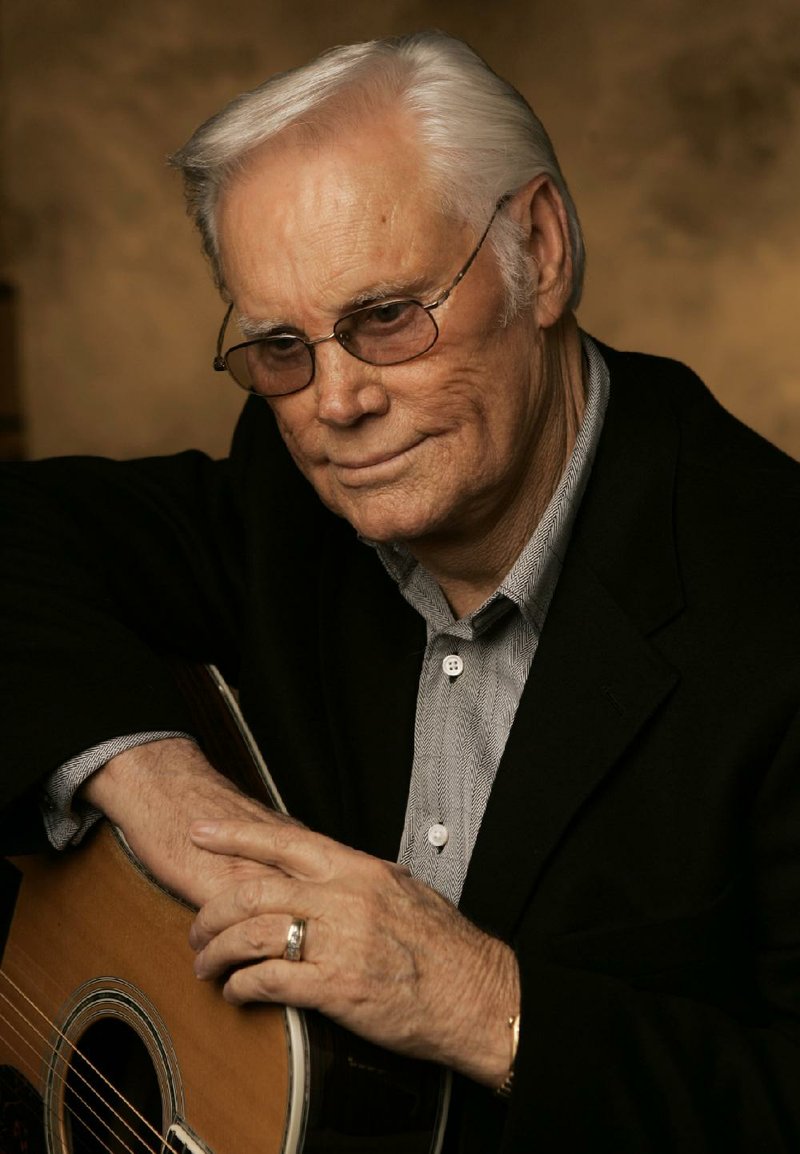NASHVILLE, Tenn. - When it comes to country music, George Jones was The Voice.
Other great singers have come and gone, but this fact remained inviolate until Jones passed away Friday at 81 in a Nashville hospital after a year of ill health.
“Today someone else has become the greatest living singer of traditional country music, but there will never be another George Jones,” said Bobby Braddock, the Country Music Hall of Fame songwriter who provided Jones with 29 songs over the decades. “No one in country music has influenced so many other artists.”
He did it with that voice.Rich and deep, strong enough to crack like a whip, but supple enough to bring tears. It was so powerful, it made Jones the first thoroughly modern country superstar, complete with the substance-abuse problems and rich-and-famous celebrity lifestyle that included mansions, multiple divorces and - to hear one fellow performer tell it - fists-ful of cocaine.
He was a beloved and at times a notorious figure in Nashville and his problems were just as legendary as his songs. But when you dropped the needle on one of his records, all that stuff went away. And you were left with The Voice.
“He just knows how to pull every drop of emotion out of the songs, if it’s an emotional song or if it’s a fun song he knows how to make that work,” Alan Jackson said in a 2011 interview.
That voice helped Jones achieve No. 1 songs in four separate decades, 1950s to1980s. And its qualities were admired by more than fellow country artists- by Frank Sinatra, Pete Townshend, Elvis Costello, James Taylor and countless others. “If we all could sound like we wanted to, we’d all sound like George Jones,” Waylon Jennings once sang.
Word of his death spread Friday morning as his peers paid tribute.
Merle Haggard put it best, perhaps: “The world has lost the greatest country singer of all time. Amen.”
In a career that lasted more than 50 years, Jones evolved from young honky-tonker to elder statesman as he recorded more than 150 albums and became the champion and symbol of traditional country music, a well-lined link to his hero, Hank Williams.
Jones survived long battles with alcoholism and drug addiction, brawls, accidents and close encounters with death, including bypass surgery and a tour-bus crash that he only avoided by deciding at the last moment to take a plane.
His failure to appear for concerts left him with the nickname “No Show Jones,” and he later recorded a song by that name and often opened his shows by singing it.
But his signature song was “He Stopped Loving Her Today,” a weeper among weepers about a man who carries his love for a woman to his grave. The 1980 ballad, which Jones was sure would never be a hit, often appears on surveys as the most popular country song of all time and won the Country Music Association’s song of the year award an unprecedented two years in a row.
Jones won Grammy awards in 1981 for “He Stopped Loving Her Today” and in 1999 for “Choices.” He was elected to the Country Music Hall of Fame in 1992 and in 2008 was among the artists honored in Washington at the Kennedy Center.
He was in the midst of a year-long farewell tour when he passed away. He was scheduled to complete the tour in November with an all-star packed tribute in Nashville.
Jones was born Sept. 12, 1931, in a log house near the east Texas town of Saratoga, the youngest of eight children. He sang in church and at age 11 began performing for tips on the streets of Beaumont, Texas.
Jones got his start on radio with husband and wife team Eddie & Pearl in the late 1940s. Hank Williams once dropped by the studio to promote a new record, and Jones was invited to back him on guitar.
After the first of his four marriages failed, he enlisted in the Marine Corps in 1951 and served three years. He cut his first record when he got out, an original fittingly called “No Money in This Deal.”
He had his first hit with “Why Baby Why” in 1955, and by the early ’60s, Jones was one of country music’s top stars.
Jones was married to Tammy Wynette, his third wife, from 1969 to 1975. (Wynette died in 1998.) Their relationship played out in Nashville like a country song, with hard drinking, fights and reconciliations.
His drug and alcohol abuse grew worse in the late ’70s, and Jones had to file for bankruptcy in 1978. A manager had started him on cocaine, hoping to counteract his boozy, lethargic performances, and Jones was eventually arrested in Jackson, Miss., in 1983 on cocaine possession charges. He agreed to perform a benefit concert and was sentenced to six months probation. In his memoir, Satan is Real, Charlie Louvin recounts being offered a fistful of cocaine by Jones backstage at a concert.
In 1980, a three-minute song changed his life. His longtime producer, Billy Sherrill, recommended he record “He Stopped Loving Her Today,” a ballad by Braddock and Curly Putnam. The song took more than a year to record, partly because Jones couldn’t master the melody.
Jones was convinced the song was too “morbid” to catch on. But “He Stopped Loving Her Today,” featuring a string section that hummed, then soared, became an instant standard and virtually canonized him. His concert fee jumped from $2,500 a show to $25,000.
“There is a God,” he recalled.
Front Section, Pages 2 on 04/27/2013

